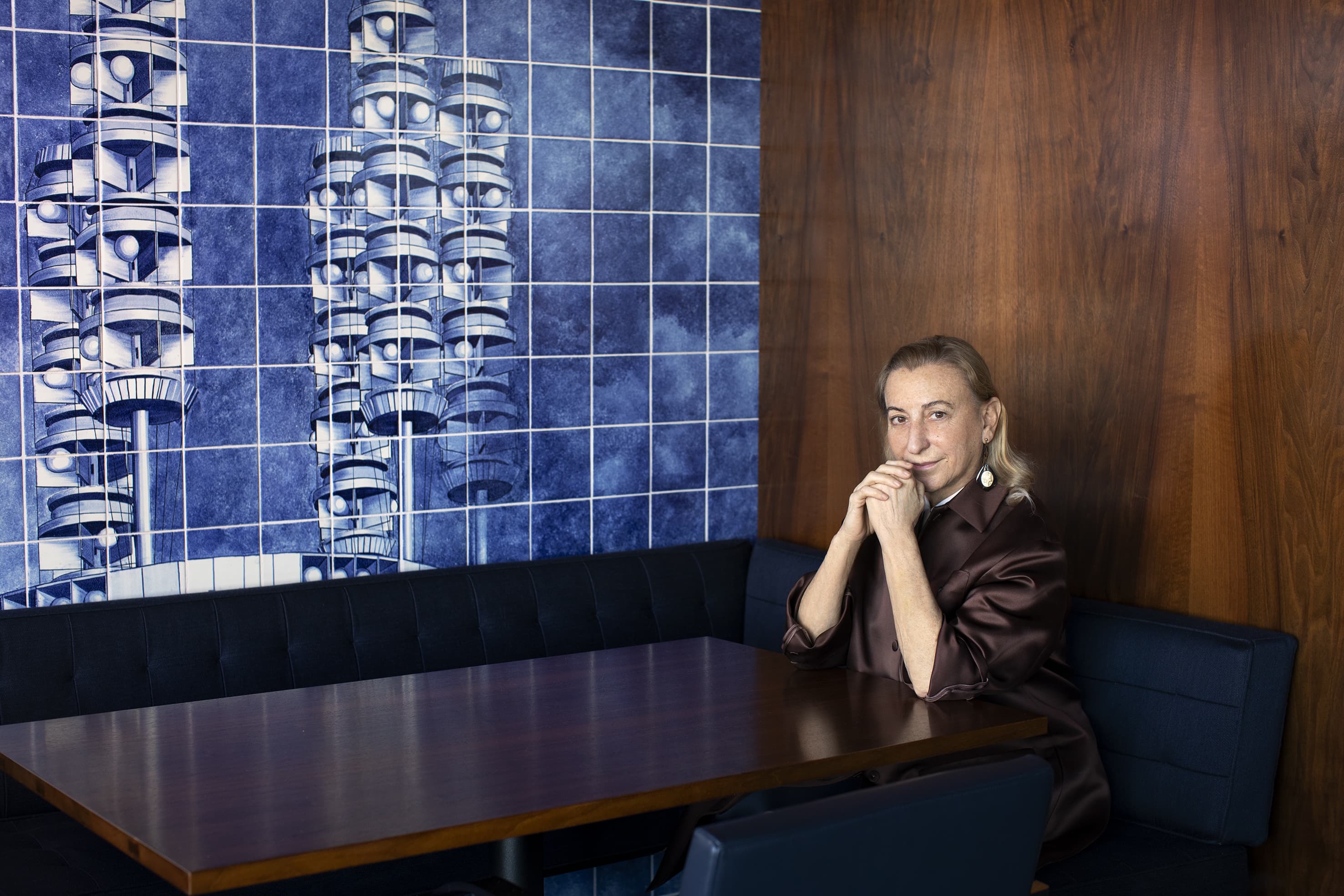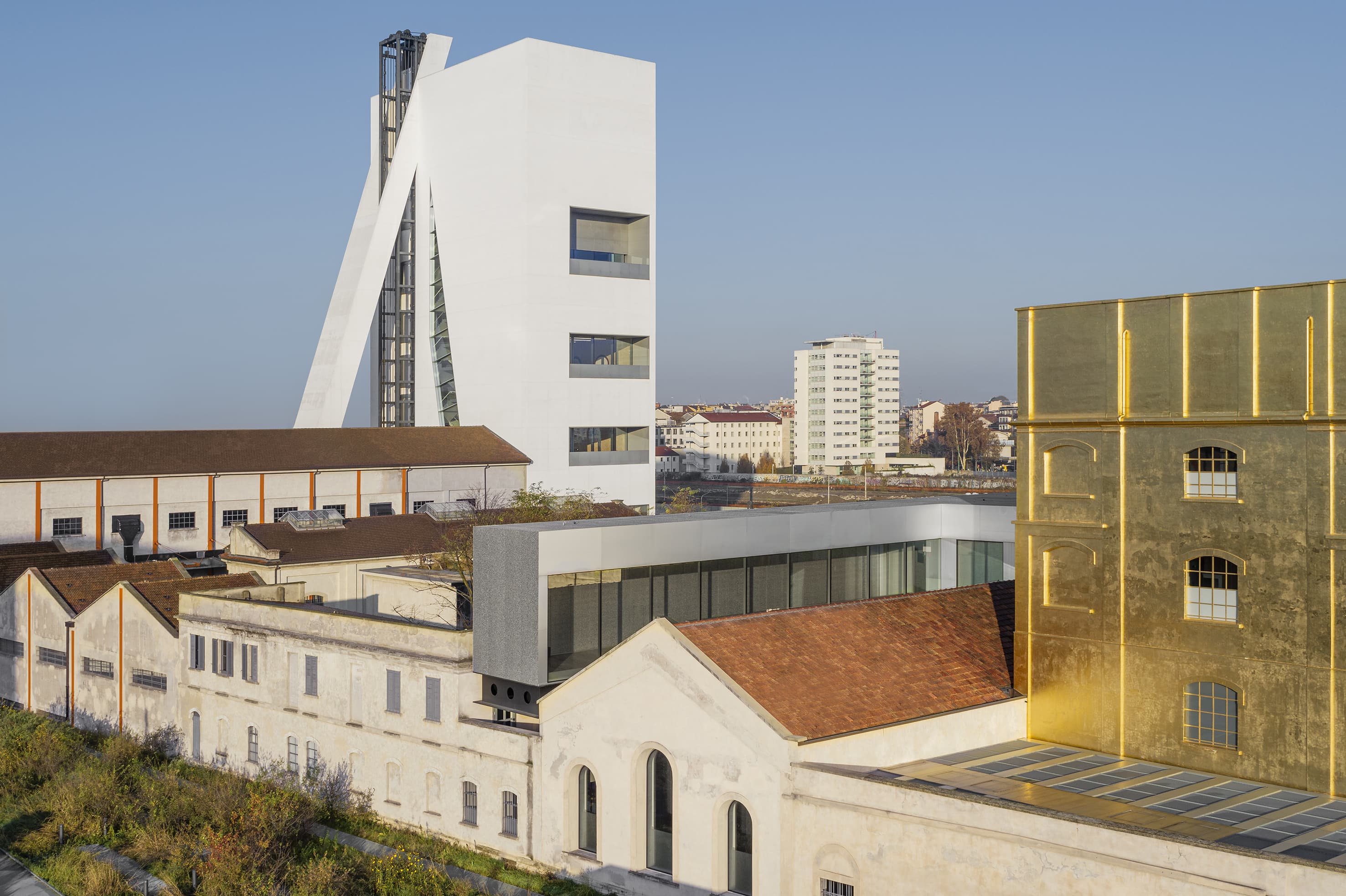
Fondazione Prada, a cultural institution created in 1993 by Miuccia Prada and Patrizio Bertelli, operates in the belief that art and study are useful and necessary to understand the changes unfolding in the world through new and engaging perspectives. Miuccia Prada has formalized her role as Fondazione Prada’s Director and confirmed her personal commitment to present and future projects, as she has done in the last three decades.
As Miuccia Prada stated, “Right from the start, through the Fondazione’s activities I aspired to investigate human culture in all its variety and complexity. Over these thirty years, I have wondered in different ways how artistic and intellectual research can impact people’s lives. Searching for increasingly topical answers to this question is the fundamental objective I have set myself with the foundation.”
A Steering Committee, which will work in close contact with the President and Director Miuccia Prada, the General Manager Cristian Valsecchi, the Head of Programs Chiara Costa, and the Fondazione’s internal team, will be integrated into the institution’s organization to explore in depth the most important topics of our times, and to investigate up-and-coming questions regarding our future.





The Steering Committee is comprised of an academic, a scientist, an artist, a filmmaker, and a scholar: Giuliana Bruno, Emmet Blakeney Gleason Professor of Visual and Environmental Studies at Harvard University; Giancarlo Comi, Honorary Professor of Neurology at the Università Vita-Salute San Raffaele in Milan; Theaster Gates, artist, activist, and Professor at the University of Chicago in the Department of Visual Arts; Alejandro González Iñárritu, film director, screenwriter, and film producer; Salvatore Settis, archaeologist, art historian, and Professor Emeritus at the Scuola Normale Superiore in Pisa.
The Steering Committee’s main functions are to identify the most stimulating research areas to develop multidisciplinary projects that can impact the contemporary cultural debate and indicate possible lines for experimentation and education. Each committee member will contribute to an intense theoretical discussion based on their individual expertise and background: from education and visual studies (Giuliana Bruno) to neuroscience (Giancarlo Comi), and from social practices (Theaster Gates) to cinema and visual languages (Alejandro González Iñárritu) and dialogues between cultures (Salvatore Settis).
It is through ongoing exchanges between people from different fields of knowledge and art that Fondazione Prada aims to experiment with new cultural practices and assert itself as a continually evolving platform for sharing knowledge and advancing creative research. Fondazione Prada is steadily evolving into a laboratory of ideas, where the coexistence of disciplines and languages generates unpredictable resonances and cultural intersections and contributes to expanding the range of knowledge.




A vast network of collaboration with artists, curators, scientists, scholars, filmmakers, architects, musicians, and intellectuals, and an extensive program —organized in the three venues in Milan and Venice, which opened between 2011 and 2016, as well as in Shanghai, Tokyo, and New York since 2018— allow to establish a dialogue with an international and plural audience. The focus is on experimenting with innovative learning methods and moments of debate free from interpretive hierarchies. Fondazione Prada wants to encourage more active and inclusive dynamics of participation that embrace a multiplicity of identities, sensibilities, and paradigms raised by communities and individuals. Particular attention is paid to the young and their development, which translates into a series of projects aimed at children and students, as well as educational and exhibition activities developed with schools, universities, and research centers around the world in the humanities, sciences, and visual arts.